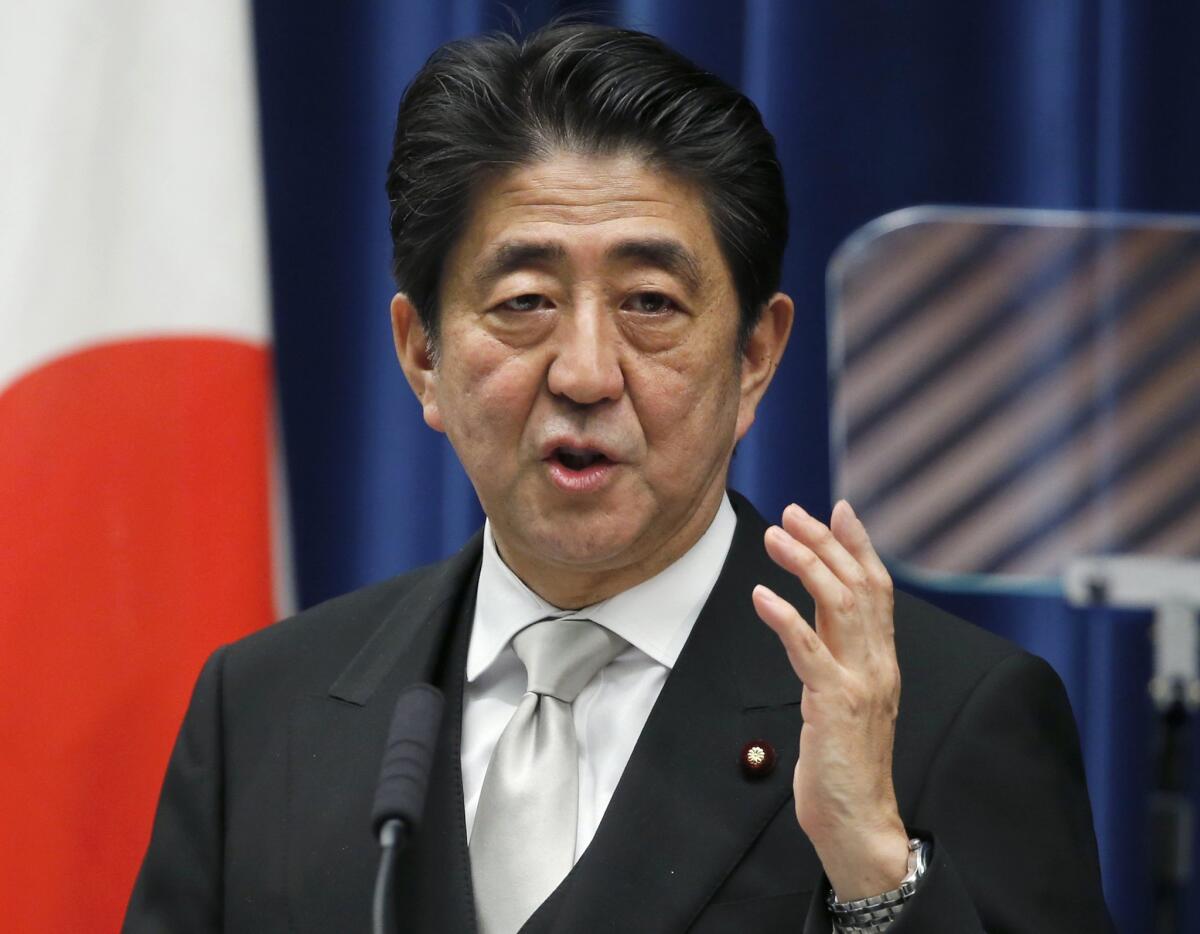Speech on World War II: 3 words to watch for from Japan’s Shinzo Abe

Japan’s Prime Minister Shinzo Abe at his official residence in Tokyo last year.
- Share via
Reporting from Tokyo — Japanese Prime Minister Shinzo Abe will deliver a speech Saturday on the 70th anniversary of Japan’s surrender to U.S. forces in World War II. The text will be closely scrutinized by Japan’s neighbors, who have criticized Abe as not being sufficiently contrite for Japan’s wartime aggression and as seeking to whitewash some of Japan’s most egregious acts during that era.
Japanese is a language with many subtle differences in words for sadness and a multitude of ways to express apology or regret. Various Japanese officials over the years have offered words of contrition for Japan’s aggression in the World War II era.
The Murayama Statement made by then-Prime Minister Tomiichi Murayama on Aug. 15, 1995, the 50th anniversary of the war’s end, was the clearest statement on Japan’s aggression and apology for the suffering inflicted on Asia and the world by Imperial Japan.
Statements since then have been judged against Murayama’s comments, and three words in the 1995 text are regarded as crucial. China, South Korea and other nations expressed hope that Abe would include these three words in his 70th anniversary speech, the text of which is expected to become public Friday. Exclusion of the words would be regarded as backsliding from Murayama’s stance.
Here are the three key terms:
Shokuminchi shihai. This means “colonial rule.” Many citizens in Japan’s former colonies and occupied areas (with the possible exception of Taiwan) still regard the time under Japanese forces as a painful period of history. But some right-wing activists in Japan deny that Japan colonized other nations and say Japanese forces actually were welcomed as liberators by “less civilized” Asians.
Shinryaku. This word frequently gets translated as “aggression,” but it also can be translated as “invasion.” The nationalist group Nihon-kaigi, or Japan Conference – which Abe and more than a dozen of his cabinet members are affiliated with – tends to deny Japan ever “invaded” Asian countries and says Japan was liberating the Asian people from Western imperialism.
O-wabi. “O” is an honorific prefix. Owabi is a word used to apologize for causing annoyance or harm to another person in the past and is a strong word of expressing sorrow and regret. It can also refer to the apology itself. An even more intense word of regret for terrible actions would be shazai, which means to apologize for a crime.
Adelstein is a special correspondent.
Adelstein reported from Tokyo and Makinen from Beijing.
More to Read
Sign up for Essential California
The most important California stories and recommendations in your inbox every morning.
You may occasionally receive promotional content from the Los Angeles Times.














